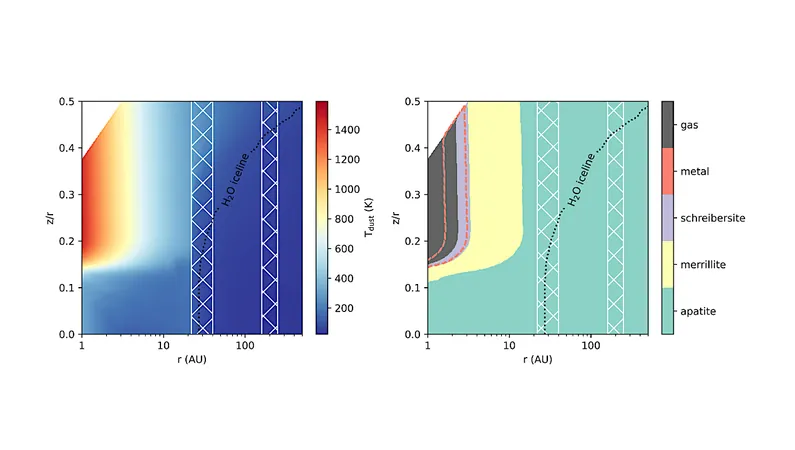
Menopause Symptoms Linked to Brain Health Risks: What You Need to Know!
2025-04-10
Author: Nur
Hot flashes, insomnia, and mood swings are not only discomforting but may also pose serious risks to brain health during menopause, according to groundbreaking new research.
A recent study published in PLOS One highlights a disturbing connection: women experiencing a higher number of menopause symptoms may face greater challenges with cognitive functions and mild behavioral impairments in later life—both recognizing signs of dementia.
This suggests that the decline in a specific estrogen hormone during menopause could be implicated in the onset of Alzheimer’s disease and other forms of dementia. However, the intricate relationship between menopause, hormonal changes, and women's brain health remains largely mysterious.
The Findings: More Symptoms, Greater Risks
Researchers examined data from nearly 900 postmenopausal women in Canada, all averaging around 64 years old. Participants reported symptoms they experienced during perimenopause, including irregular periods, weight gain, and sleep issues. Shockingly, about 75% reported at least one symptom, averaging 3.7 symptoms each.
The results were alarming: women with more menopause symptoms exhibited greater cognitive and behavioral impairments as they aged. "Each additional symptom was linked to poorer cognitive function and severe behavioral issues," noted Dr. Zahinoor Ismail, a key author in the study.
Does Hormone Therapy Help?
While hormone therapy was found to reduce some behavioral issues related to dementia, it didn’t significantly alleviate cognitive symptoms. Dr. Matthew Panizzon cautioned, "We can’t definitively say that menopause and hormonal changes account for the heightened risk of Alzheimer’s, but it’s increasingly an area of research focus."
The study also indicated that estrogen therapy might help mitigate behavioral impairments by about 27%, paving the way for more explorations into preventive treatments.
Protecting Your Brain Health: What Women Can Do Now
The pathway between menopause and dementia is still a complex puzzle. Dr. G. Peter Gliebus pointed out that not all women face significant cognitive decline during menopause, implying other factors may play a role.
For women looking to safeguard their brain health, more proactive approaches are essential. Here are key recommendations:
• **Prioritize Sleep**: Quality sleep is vital for cognitive health.
• **Manage Stress**: Find effective stress-relief techniques that work for you.
• **Stay Physically Active**: Engage in regular aerobic exercise to improve blood circulation to the brain.
• **Eat a Healthy Diet**: Consider Mediterranean or MIND diets rich in healthy fats, lean proteins, and antioxidants to combat inflammation.
• **Consult Healthcare Providers**: Regularly discuss menopause symptoms and potential treatment options with your doctor.
Conclusion: Stay Informed and Proactive!
As research continues to unravel the complex links between menopause and brain health, it’s vital for women to stay informed and take proactive steps. Taking control of your health can make all the difference for your cognitive future!




 Brasil (PT)
Brasil (PT)
 Canada (EN)
Canada (EN)
 Chile (ES)
Chile (ES)
 Česko (CS)
Česko (CS)
 대한민국 (KO)
대한민국 (KO)
 España (ES)
España (ES)
 France (FR)
France (FR)
 Hong Kong (EN)
Hong Kong (EN)
 Italia (IT)
Italia (IT)
 日本 (JA)
日本 (JA)
 Magyarország (HU)
Magyarország (HU)
 Norge (NO)
Norge (NO)
 Polska (PL)
Polska (PL)
 Schweiz (DE)
Schweiz (DE)
 Singapore (EN)
Singapore (EN)
 Sverige (SV)
Sverige (SV)
 Suomi (FI)
Suomi (FI)
 Türkiye (TR)
Türkiye (TR)
 الإمارات العربية المتحدة (AR)
الإمارات العربية المتحدة (AR)